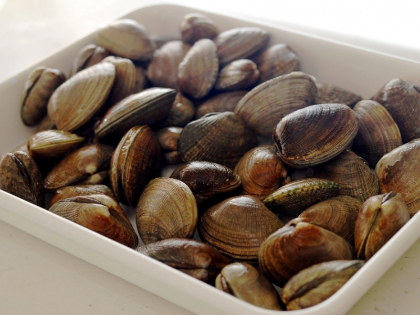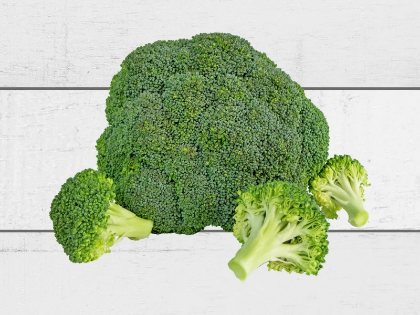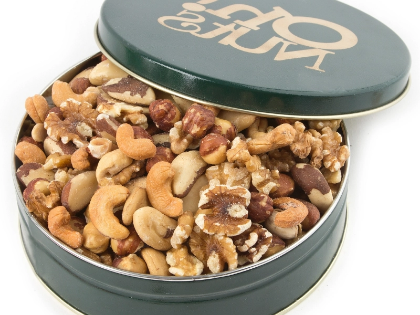Broccoli: The Growing Child's Nutritional Powerhouse
Often hailed as one of the most nutrient-dense vegetables, broccoli is a great choice for young children's growing diets. Loaded with vital nutrients, vitamins, and antioxidants, broccoli helps children grow and develop normally. This post explores the nutritional advantages of broccoli, its function in strengthening immunity, its contribution to bone health, and some doable ideas for including this green powerhouse into kids' meals.
1. Broccoli's nutritious value

2. Increasing Immune System Performance
 The capacity of broccoli to improve the immune system is one of its main advantages. Growing youngsters come into contact with many germs and diseases; hence, a strong immune system is quite important. Sulforaphane, among other antioxidants, helps fight oxidative stress in the body and has anti-inflammatory effects.
Another important factor in immune system function is the vitamin C in broccoli. It boosts white blood cell formation, which is essential for the combat of infections. Furthermore, broccoli's fibre helps gastrointestinal health, which is intimately related to the immune system. A good gut flora can help the body stay generally healthy and fight against illnesses. Parents can assist in strengthening their children's immune systems by including broccoli in their diets, thereby assuring their continued health and vitality.
The capacity of broccoli to improve the immune system is one of its main advantages. Growing youngsters come into contact with many germs and diseases; hence, a strong immune system is quite important. Sulforaphane, among other antioxidants, helps fight oxidative stress in the body and has anti-inflammatory effects.
Another important factor in immune system function is the vitamin C in broccoli. It boosts white blood cell formation, which is essential for the combat of infections. Furthermore, broccoli's fibre helps gastrointestinal health, which is intimately related to the immune system. A good gut flora can help the body stay generally healthy and fight against illnesses. Parents can assist in strengthening their children's immune systems by including broccoli in their diets, thereby assuring their continued health and vitality.
3. Encouraging Bone Wellness
 Apart from strengthening the immune system, broccoli is quite important for maintaining bone health. Strong bones are absolutely vital for growing youngsters since they are still developing and expanding. Given that broccoli's high concentrations of vitamin K help control calcium in the bones and blood, bone health especially depends on this vitamin.
Though in lesser levels than dairy products, calcium is another vital mineral contained in broccoli. Broccoli, however, can help to meet the total calcium required for strong bones when coupled with other foods high in calcium. Furthermore, supporting bone structure and strength are the magnesium and phosphorus in broccoli. Including broccoli in their meals will assist parents in making sure their kids are getting the nutrients required for the growth of their bones.
Apart from strengthening the immune system, broccoli is quite important for maintaining bone health. Strong bones are absolutely vital for growing youngsters since they are still developing and expanding. Given that broccoli's high concentrations of vitamin K help control calcium in the bones and blood, bone health especially depends on this vitamin.
Though in lesser levels than dairy products, calcium is another vital mineral contained in broccoli. Broccoli, however, can help to meet the total calcium required for strong bones when coupled with other foods high in calcium. Furthermore, supporting bone structure and strength are the magnesium and phosphorus in broccoli. Including broccoli in their meals will assist parents in making sure their kids are getting the nutrients required for the growth of their bones.
4. Simple Strategies for Including Broccoli in Dinners
 Although it might often be difficult, there are many inventive ways to include broccoli in kids' diets. Pasta meals could benefit from steamed broccoli added in one simple way. The dish may look better with the brilliant green hue and crunchy texture. Parents can also toss broccoli into smoothies, hiding the taste by combining it with berries and bananas, therefore delivering vital nutrients even in disguise.
Making broccoli bites or fritters is another enjoyable approach to presenting the vegetable. Kids will adore a delicious snack created with finely chopped broccoli mixed with eggs, cheese, and breadcrumbs. A great side dish, roasted broccoli tastes better when combined with olive oil drizzle and a sprinkle of salt. Parents can find ways to make broccoli a fun component of their children's meals by looking at several cooking techniques and recipes.
Although it might often be difficult, there are many inventive ways to include broccoli in kids' diets. Pasta meals could benefit from steamed broccoli added in one simple way. The dish may look better with the brilliant green hue and crunchy texture. Parents can also toss broccoli into smoothies, hiding the taste by combining it with berries and bananas, therefore delivering vital nutrients even in disguise.
Making broccoli bites or fritters is another enjoyable approach to presenting the vegetable. Kids will adore a delicious snack created with finely chopped broccoli mixed with eggs, cheese, and breadcrumbs. A great side dish, roasted broccoli tastes better when combined with olive oil drizzle and a sprinkle of salt. Parents can find ways to make broccoli a fun component of their children's meals by looking at several cooking techniques and recipes.
5. Dispelling Typical Broccoli Myths
Though it has many health advantages, broccoli sometimes suffers misunderstandings that can discourage young people from eating it. One persistent fallacy is that broccoli is either tasteless or bland. Actually, prepared correctly, broccoli may be really delicious and pleasing. Children will find it more enticing and taste better if you experiment with several ingredients, including cheese, lemon juice, or garlic. Another myth is that broccoli's texture would turn off young children. Parents can discover the correct texture their children like by changing the cooking techniques, though—steaming, roasting, or stir-frying. Teaching youngsters about the nutritious value of broccoli can also assist in raising their inclination to try it. Parents may inspire their children to love this healthy food by dispelling false ideas and showing broccoli in a favourable light.
6. The Value of a Diverse Diet for Children
Although broccoli is a nutritious powerhouse, youngsters should have a balanced diet with a lot of fruits and vegetables. Every variety of vegetable provides special nutrients that support general wellness. Parents can guarantee that their children obtain a balanced supply of vitamins and minerals by including other veggies besides broccoli. Encouragement of children to try different veggies helps to shape their taste preferences and support good eating habits. Parents may design vibrant dishes loaded with a range of veggies, therefore enhancing the visual appeal and excitement of mealtime. This method not only improves diet but also teaches youngsters the value of a balanced one, therefore laying the groundwork for a lifetime of good eating practices.
7. Finish: Getting Broccoli Popular Among Families
Including broccoli in your child's diet will help them grow and develop in the long run. Parents can assist their children in developing good habits by knowing the nutritious value of broccoli and by coming up with imaginative ways to add it into dishes. Investigating several recipes and cooking techniques as a family will help you to make eating broccoli an interesting and joyful activity. Broccoli is really a powerhouse food that helps the good development of youngsters with its rich nutrient profile.











